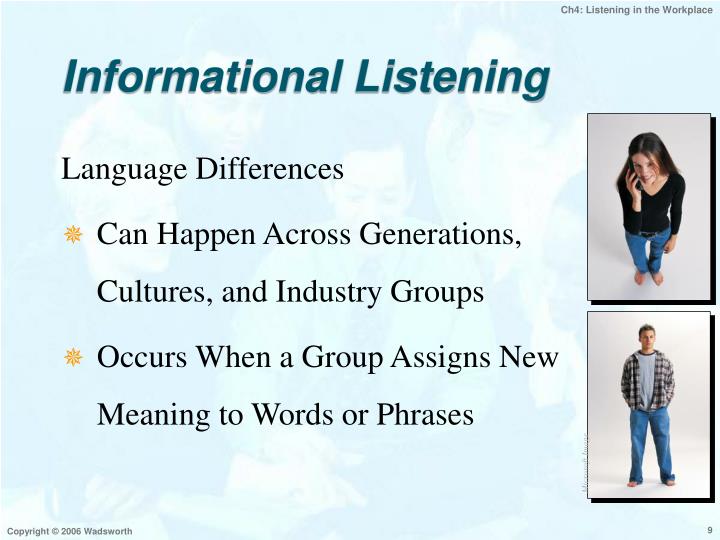

Lees suggests that you practice “asking great questions and conveying memorable energy” with “people who are easy to talk to, such as your family, your friends, and friends of friends.” Work on your listening and conversation skills too. “Showing that you’ve done your background research plants the idea of credibility in the other person’s mind,” he says. “You will come across as a more serious candidate if you are familiar with the jargon and vocabulary,” says Clark. You don’t want to waste your expert’s time asking Google-able questions. Be able to talk about the most important trends. After all, your goal is to come across in a way that inspires others to help you. Informational interviews are, according to Clark, “a safe environment to ask questions.” But that doesn’t mean you should go in cold.
#INFORMATIONAL LISTENING. HOW TO#
So whether you’re actively trying to change roles or just exploring different professional paths, here are some tips on how to make the most of an informational interview.

“You get to wear smart business clothes and visit places of work, which maintains your confidence levels in a job search,” he explains. “The visibility may put you straight onto a short list, even if a job isn’t advertised.” They can also be a great boost to your self-esteem. Informational interviews “give you exposure - a way to get yourself known in the hidden job market,” he says.

“You may think you already know all about a certain position, but speaking to someone directly gives you the opportunity to test your assumptions.” John Lees, a UK-based career strategist and author of The Success Code, agrees. “Informational interviews are essential to helping you find out more about the type of industry, company, or role you’re interested in,” says Dorie Clark, author of Stand Out Networking. But what should you say when you’re actually in one? Which questions will help you gain the most information? Are there any topics you should avoid? And how should you ask for more help if you need it? When you’re looking for a job or exploring a new career path, it’s smart to go out on informational interviews.


 0 kommentar(er)
0 kommentar(er)
